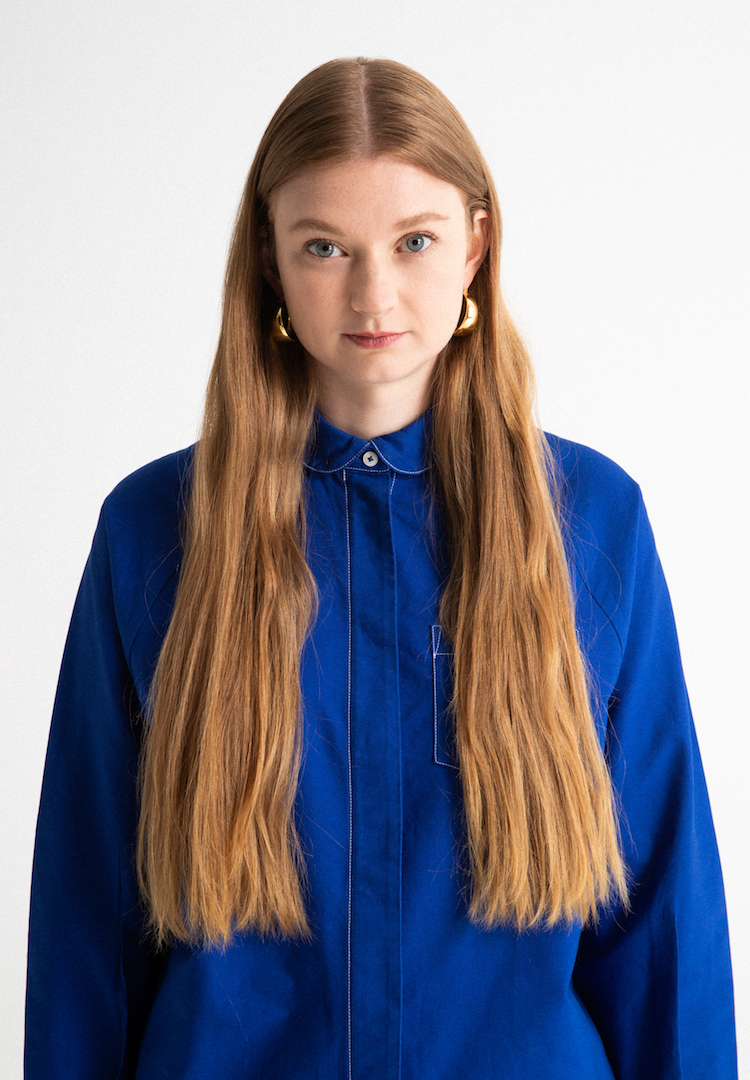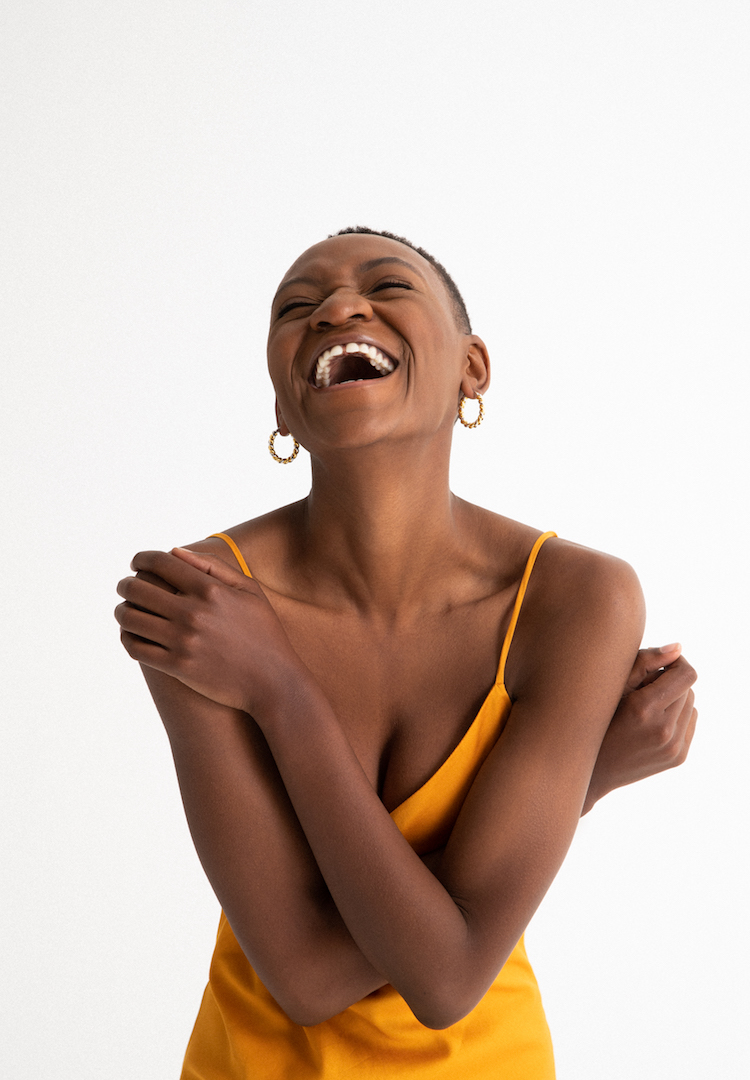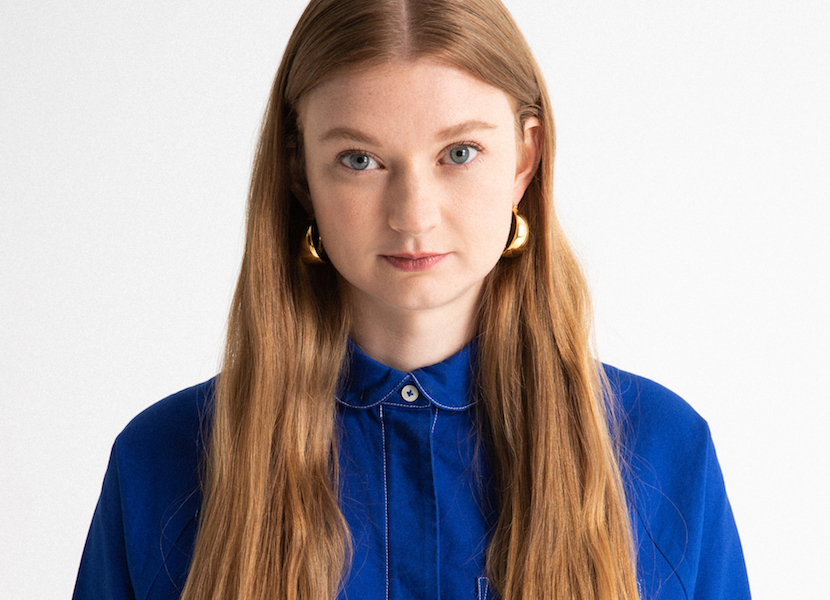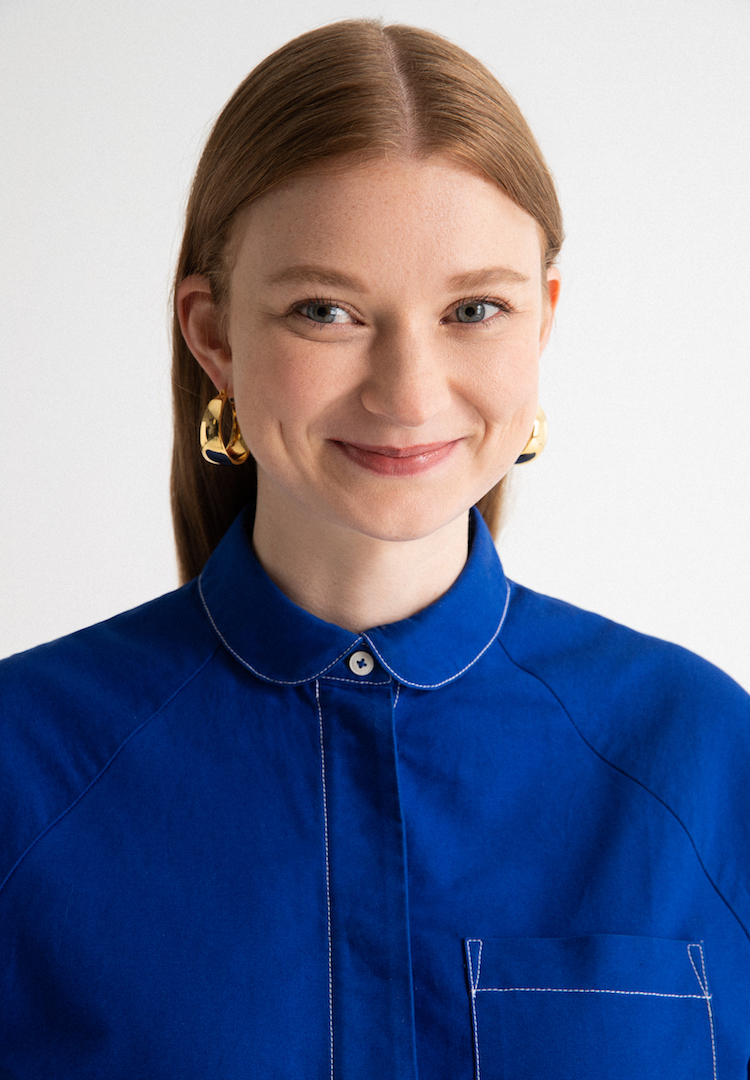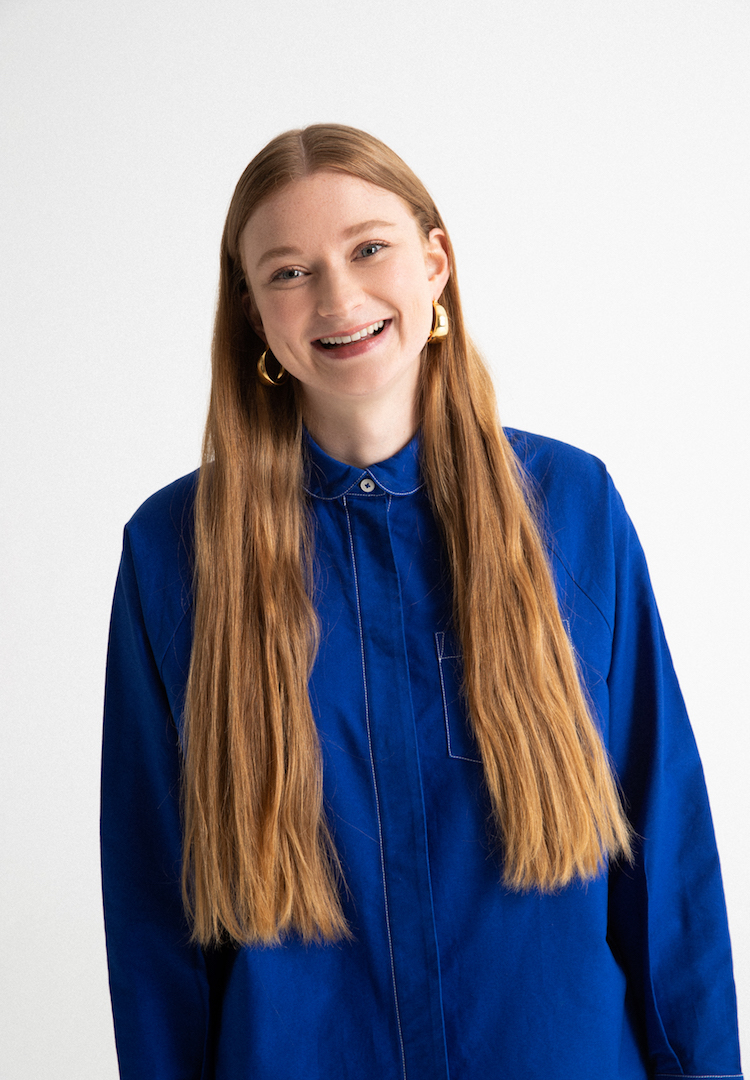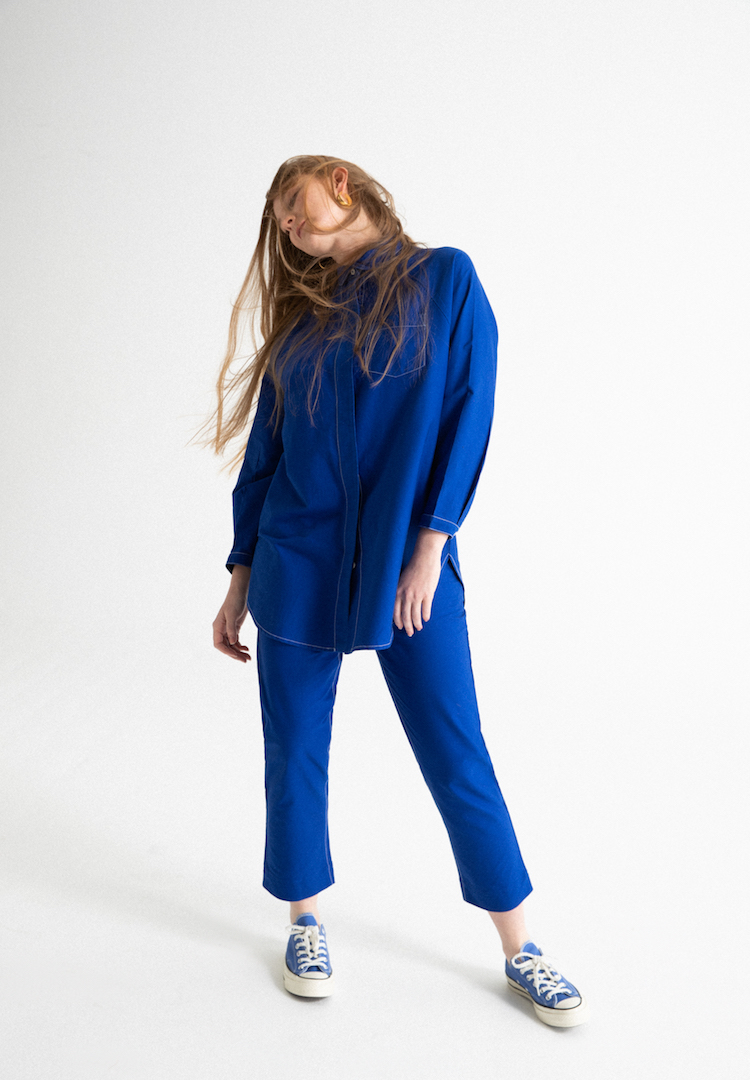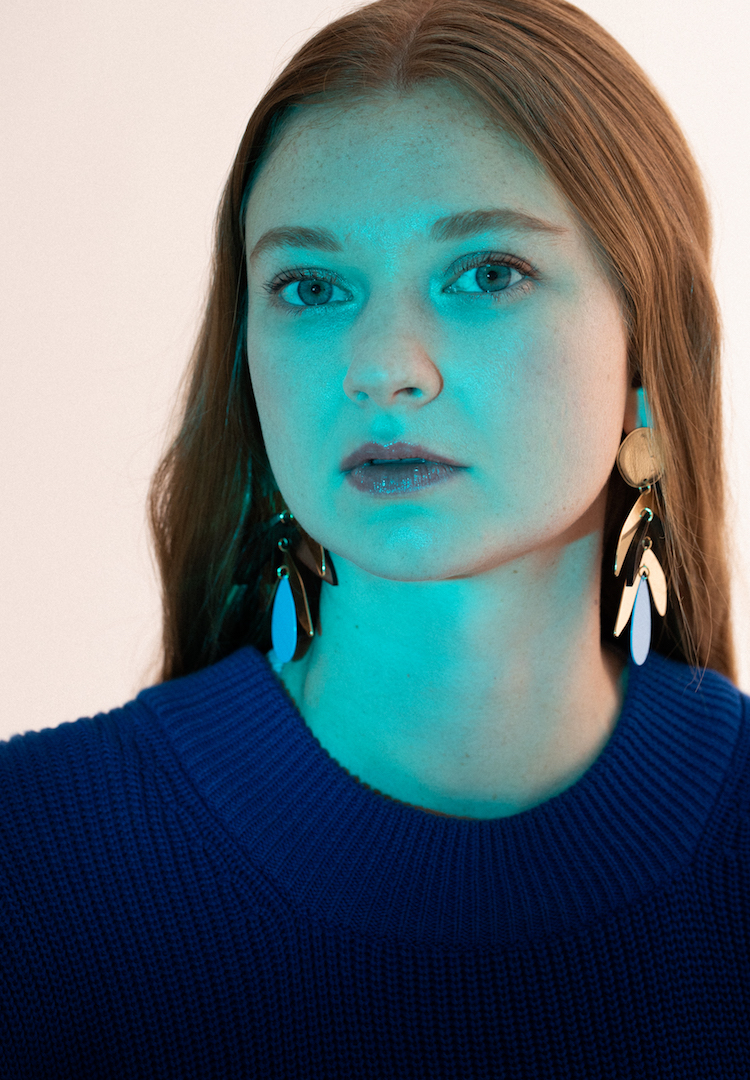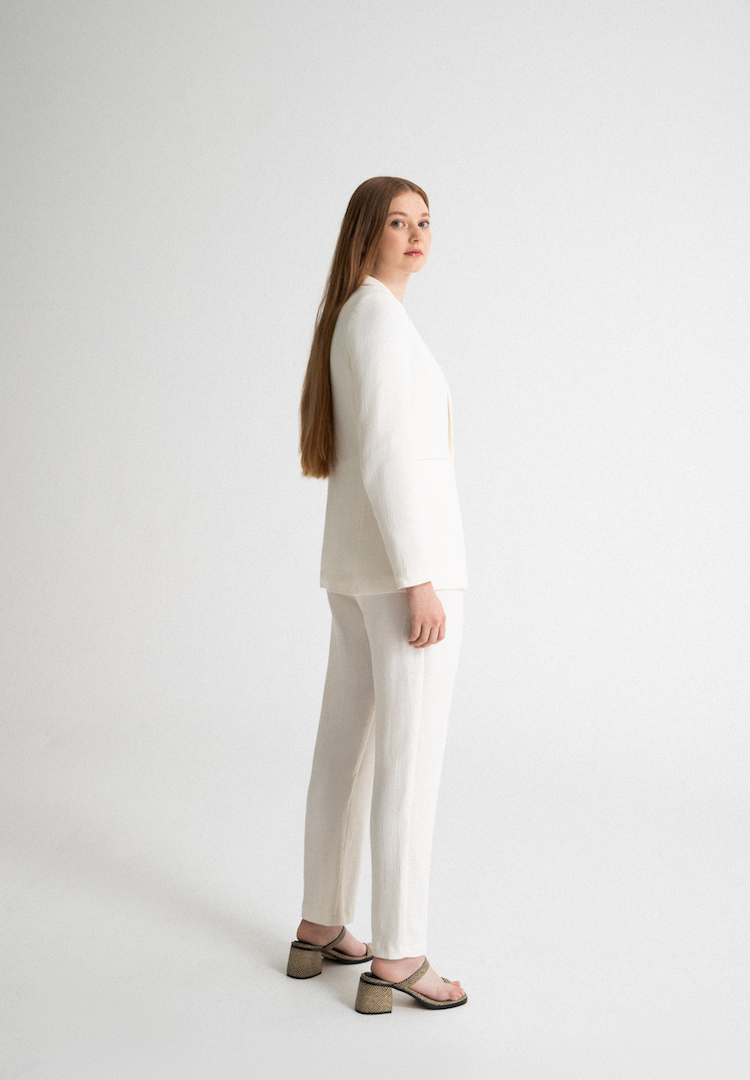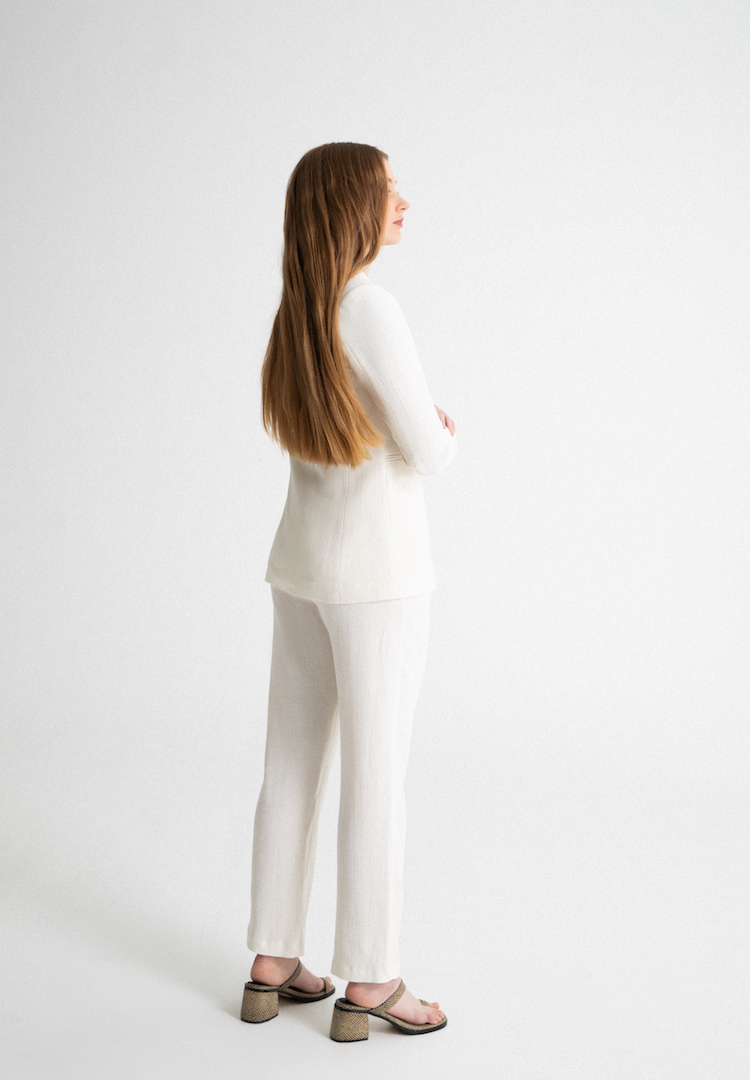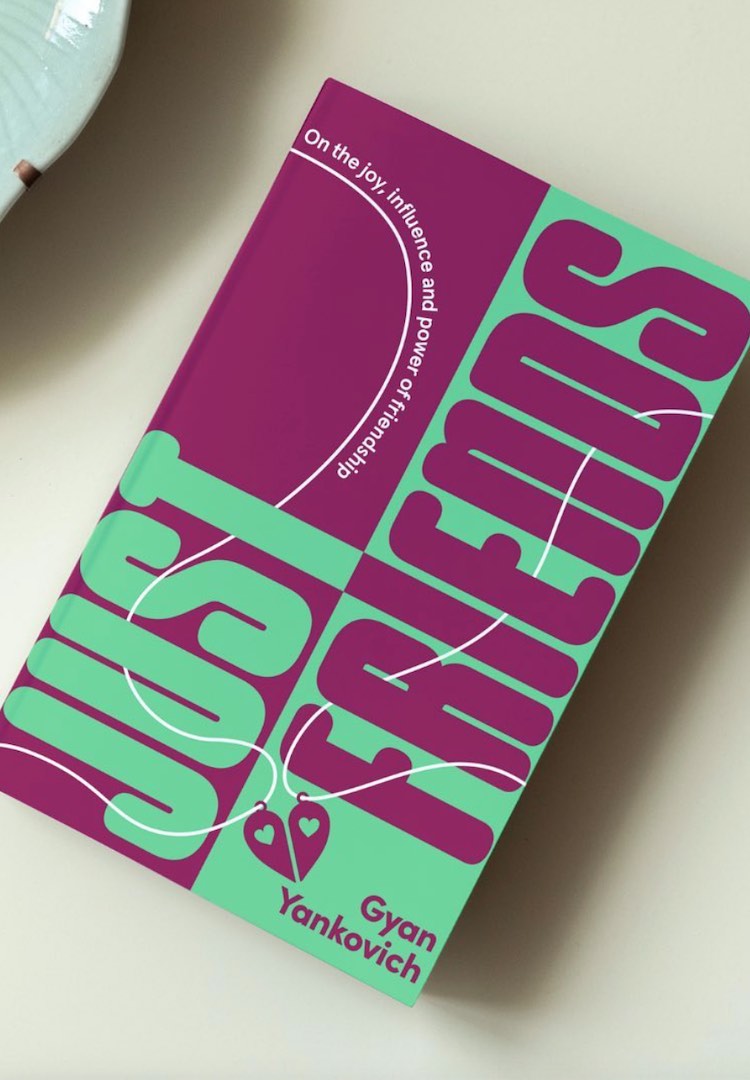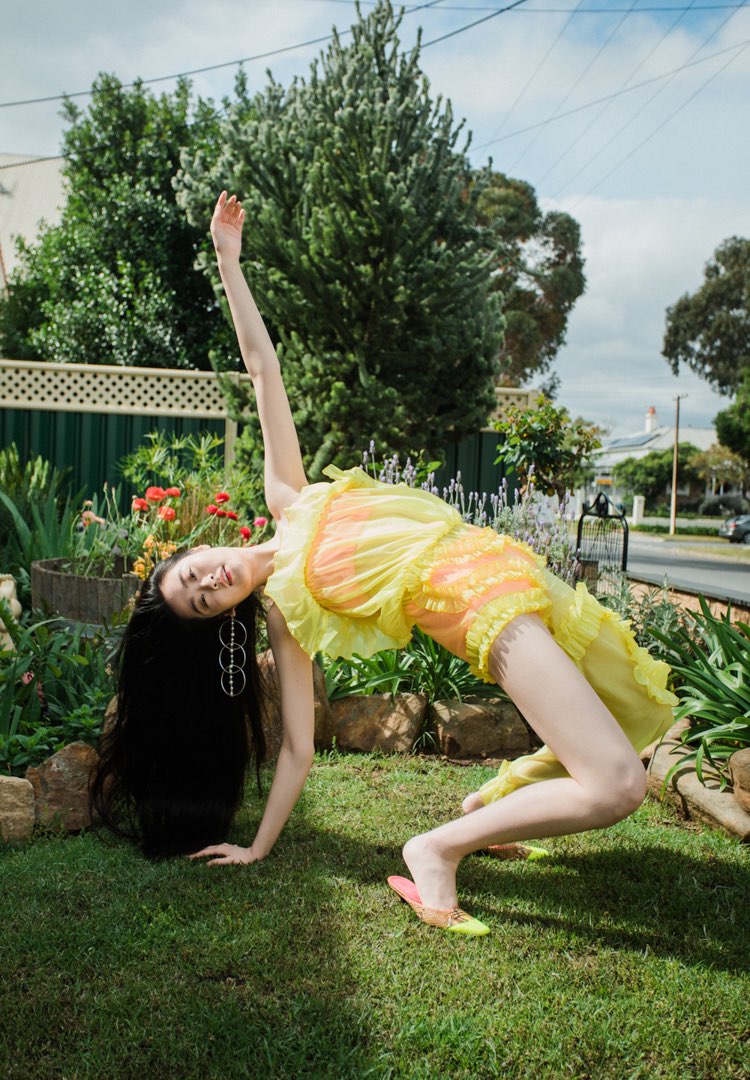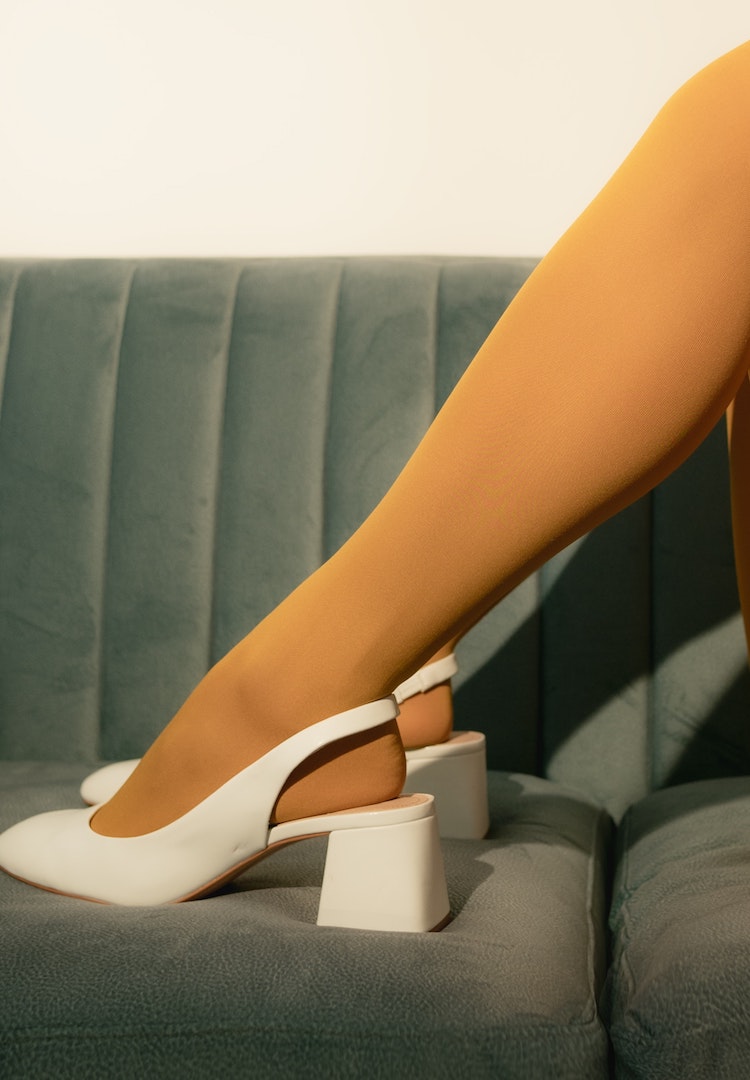Queensland’s sexual consent law is changing thanks to Bri Lee
PHOTOGRAPHER – KRISTINA YENKO
PHOTOGRAPHER’S ASSISTANT – CHRIS CAO
STYLIST – OLIVIA SMYTHE
HAIR AND MAKEUP – VERONIKA MOREIRA
SHOT AT SUNSTUDIOS SYDNEY
WORDS BY ELIZA SHOLLY
Getting louder.
When Eggshell Skull was first published in May 2018, author Bri Lee quickly became the face for a cause that so many could relate to.
In her job as a Judge’s Associate at the Queensland District Court, Bri was exposed to a constant flow of sexual assault cases, in which many people (mostly women) never saw justice. It was through witnessing, mourning and raging over this endless process that Bri came to acknowledge her own prior trauma, and tell the story that ultimately found her on the other side of the courtroom.
Bri had been sexually assaulted as a child by her older brother’s friend. No longer willing to stay silent, she began the long journey as a complainant in the criminal justice system.
While harrowing, the autobiography was an instant success. Bri quickly became a public face for survivors of sexual assault. Through sharing her story, the 27-year-old has been given a microphone to publicly champion a cause she cares so deeply about and she has used this publicity to change Queensland’s laws around sexual consent.
As it currently stands, the 110-year-old ‘mistake of fact’ legal defence allows an accused rapist to argue they had a mistaken, but honest and reasonable belief, that the sexual act was consensual. It is an argument that is regularly used by accused rapists in the state, who can contest that intoxication, a person’s behaviour, previous flirting or limited English speaking abilities caused them to believe the other person had consented.
Bri co-authored the most detailed academic study of the use of the defence, and has been a vocal advocate for reform. Just like intoxication isn’t an excuse for drink driving, she argues, being drunk shouldn’t be an excuse for rape.
When touring Eggshell Skull late last year, Bri first learnt of the archaic defence. She simultaneously realised she had cultivated a platform that she could now use to make a difference. “Eggshell Skull gave me the opportunity to do something constructive with the audience I had gathered,” she says. “In such a short amount of time, I was placed at the forefront of the cause.”
She’s already making significant headway. Following Bri’s efforts, on the 9th of July, state Attorney-General Yvette D’Ath announced she was referring the ‘mistake of fact’ defence to the Queensland Law Reform Commission to evaluate whether the law should be changed.
“I burst into tears when I got the news,” says Bri.
“I found out a few hours before the formal announcement and had to go to the ABC offices to record a piece to camera for that night’s news. Having fought for this for so long, and having come up against so much conservative pushback, I really am still processing what an achievement the referral is.”
The mistake of fact defence is commonly used in circumstances when a complainant has ‘frozen’ while being subjected to unwanted sexual advances.
“When this happens, a survivor often feels so much confusion, shame and embarrassment about either not fighting back or not running away,” says Bri. “In reality, the freeze response is the most common. So as an incidental by-product to the law reform campaign, we’ve been able to raise awareness about the freeze response and how common those rape myths are. That’s been really powerful.”
All of Australia’s states and territories — with the exception of Queensland and Western Australia — have now amended or are in the process of amending how the law recognises consent to sex.
“We still have a bit of a fight ahead, of course,” Bri acknowledges. “The same powerful, conservative voices will be at the forefront of submissions to the Law Reform Commission, but I have faith we will see some change. Now it’s a question of how much, rather than if.
“And obviously it feels good to know I proved certain people wrong. At the end of the day, I feel satisfied knowing that change is really possible.”
Although statistically it’s hard to determine exactly how many times mistake of fact has been argued in Queensland’s courts, it should be noted that most sexual assault cases don’t make it there in the first place. Only 15 per cent of rape survivors make a complaint to police and then, only three per cent see their rapist convicted.
“When I hear about anyone whose matter makes it to court, I think that they’re a hero to even get that far. Because even in my circumstance, I didn’t feel that proud of a verdict. It’s 12 random strangers in a deeply flawed system. That’s not something that you wave a victory flag about. But getting someone arraigned in a courtroom, the only person more afraid than you are, is them. That is something to just celebrate.”
A condensed version of this article was originally published in Fashion Journal 190. You can read it here.
Styling credits
LOOK ONE
KOWTOW COLLECTOR SHIRT AND EDITION PANT, ALIX YANG ZURI HOOPS, CONVERSE SNEAKERS
LOOK TWO
KOWTOW WORKROOM JUMPER $259, STYLIST’S OWN EARRINGS
LOOK THREE
ARNSDORF CELESTE JACKET AND TAILORED TROUSER, BATU MARGO SNAKE HEEL


